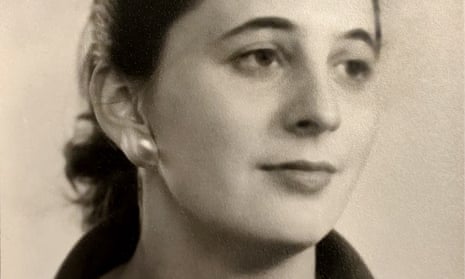My mother, Brenda Almond, who has died aged 85, was a philosopher, author and ethicist.
She was born into a poor, working-class family in Birkenhead, Merseyside. Her father, Edward, a painter and decorator, was called up during the second world war and died soon after; her mother, Margaret (nee Potter), died of a respiratory illness when Brenda, an only child, was five.
Despite this difficult start, after Birkenhead high school, Brenda went to University College London, where she studied philosophy under AJ Ayer, who became a lifelong friend, supporting her in her attempts to promote “practical philosophy” even as he himself was resolutely of the opposite persuasion. She was awarded the Rosa Morison prize for philosophy and graduated with first-class honours, going on to gain a master’s in philosophy from the University of London for a thesis on ethics and rationality.
While at UCL, Brenda met Des Cohen, who was a student at the London School of Economics; they married in 1959 and had four children. Brenda juggled bringing us up with the first steps of her career. Brenda and Des separated in 1982, and later divorced.
Her first job was teaching philosophy at Exeter University in 1959, after which she taught at the University of Ghana in Accra (1960) and Keele University (1962-63) and then held a post in the philosophy of education at Brighton College of Education (1964-74).
In 1974 she became a lecturer in philosophy at Surrey University, where she was caught up in a national political controversy over the closure of the philosophy department.
Then, in 1986, she became reader and, later, professor of social and moral philosophy at Hull University, where she founded and, from 1992 to 2002, headed the Social Values Research Centre. From 1988 to 2001, Brenda served on the Human Fertilisation and Embryology Authority, and, after retiring in 2002, she became a member of the Human Genetics Commission (2002-08).
In her first book, Educational Thought (1969), she argued that, with schooling, one size does not and should not fit all. She particularly worried that, given the chance, the state would seek to impose its values on citizens, an idea shared by Plato all those years ago – only he was in favour of it.
Of her many other books, perhaps Brenda’s most authentic voice can be found in her best-known title, The Philosophical Quest (1990), which was published in a Penguin edition. The book is a mix of conventional, essentially educational, summaries of the core themes of philosophy, with more fluid, creative passages in which the narrator records receiving philosophical letters from a mysterious correspondent called Sophia.
Brenda’s later writing centred on defence of the “traditional family”. She identified several modern threats to it, and warned that its fragmentation was causing serious social problems.
One of her lifelong pleasures was to sit down at a piano and sing songs – preferably accompanied by friends. She will be remembered as a warm and very caring human being who understood the importance of the simple actions through which people weave their daily lives.
Brenda is survived by her children, Anna, Louise, Paula and me, five grandchildren and a great-grandchild.
